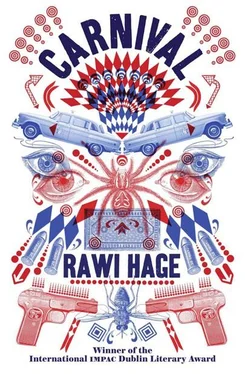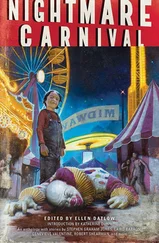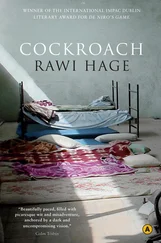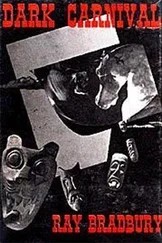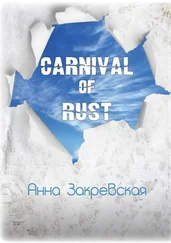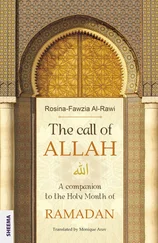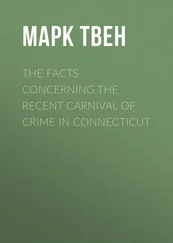The next morning, I went back to see the Sheikh, and sure enough, there was a woman waiting in the back seats of the mosque, in the women’s quarter. We got married and I immediately moved into her house. Her kids were very young; she was still nursing one of them. Her husband had died in battle and now she was in need, she had no one, no family to take care of her. That night she fed me and never looked me in the eyes, but towards the end of the evening, when the kids went to sleep, we both retreated in silence to the bedroom. Her husband’s clothing still hung against the wall. I was nervous. I had never touched a woman before. But here she was all naked under the covers of the bed. I decided to get under the sheets with my clothes on. But she stopped me and started to undress me and touch my chest, looking me straight in the eyes. When my organ got strong, she held it in her hand and directed me slowly. She knew that I didn’t know how. The Sheikh, I thought, must have briefed her. I ejaculated almost as soon as I penetrated her. She pulled me to her side and said, If you come back alive, this is your home and this is where more pleasure will come your way.
During the battle, I pitied those poor Australians. They threw themselves onto the beaches and under our guns, and we massacred them by the thousands. We were triumphant. . Long live Ataturk, everyone shouted, the mighty commander who has saved our land!
As my father’s carpet reached the ceiling, I looked at the shores and I ejaculated in between the two colliding histories and felt fortunate to be alive, lucky to have water and to be able to clean myself after these horrific battles that leave you smeared with mud, blood, wire cuts, and bruises.
I finally slept. I woke up in the late afternoon. The sun was already starting to weaken and prepare for an early retirement into the sea, or behind a mountain and a cloud or a silhouette of a couple holding hands and cones of ice cream, or bags of peanuts or bananas to feed the monkey urges inside them and make them hop from one palm tree to the next, until they reached the shore and then held hands again and shared more peanuts. I still had a couple of hours before my shift, and I hesitated between leaving the bed and brushing my teeth, extending my arm to the nearby bookshelf to arbitrarily grab a book and read, or completing the fantasy that I’d started and spreading my semen against the sunset and the crooked, wobbly shore. I read. Then I stood up and brushed my teeth and relieved myself from the burden of liquid I’d amassed during my day’s sleep while the kids played and shouted in the neighbourhood’s backyards.
Around six in the evening, I poured myself a glass of red juice. All was quiet; the large spider had captured a moth. I turned off the light and decided to leave before the spider struck with its fangs and extracted the liquid from its mummified prey. One big meal is enough for one night of feeding, I thought. Too much food will make you fat as doctors, complacent as accomplished writers, sluggish like Roman orgy-goers, round like dictators’ wives, wobbly like elephants, circular like tents, spherical like lanterns, and cylindrical like machine operators.
But I also left because the books were starting to move and the mice in my place were getting restless in between the covers. Before the characters started to leave the pages for fear of their ears being nibbled on or losing their toes to those rodents’ teeth, I went down to the basement to prepare my ship for the evening sail.
RAIN
I DROVE MY car through a night that was still and calm. The light rain wet the asphalt and the roads shone with the grey shades of people in long, slippery shadows. I could see the colour of my car moving above the water beside a floating Jesus and a flight of wild geese. I drove. It was a surprisingly quiet night; usually with the rain come the slugs, worms, and monstrous umbrellas, resuscitated from inside women’s bags, yawning open above men in hats. With the rain, people surface at the edges of the sidewalk, staring into the puddles like hesitant suicides. What has happened tonight, I thought. Where are those seekers of dryness, those god-fearing souls fleeing the apocalyptic floods, where are the wetted carcasses desperate for shelter and ships? I’ve been driving for an hour and not one soul has entered my car.
I listened to the soft music on the radio. The Carnival is about to start and people must be sticking the last thread and needle into their costumes or practising their dancing steps, or it might simply be that my lantern has gone out. So I stopped and got out and looked at the top of my car, thinking the light bulb was dead or maybe I’d forgotten to secure the lantern. Because once I picked up a woman with whom I had a fight over the fare. She accused me of taking the longest route; she said that I was driving too slowly and taking her through mazes and labyrinths, and she assured me that she always took the same road and that she’d never had to pay that much. So I responded by accusing her of lying, of giving me a hard time, of being suspicious of hard-working men.
I will pay what I usually pay, she said.
You’ll never leave my car until you pay the full fare.
Fine, she said, I’ll pay and I’ll curse you.
I am already cursed, lady, I said. I am cursed to be a sailor and a wanderer and to be stranded on ships of lunatics and fools down in the London River. .
What will it be, the little money or the curse? she asked.
You pay me, I said, and then you can spell and pour and babble whatever you like, I’ll just scoop it up into my magic box here that is stacked with layers of soft white sheets. In my youth, lady, I also learned a few tricks. I learned how to make assistants, pigeons, and rabbits disappear. I learned that the universe was created in the void of a hat, that it bloomed from the sleeve of a trickster, and that one day it shall disappear again into the blackness of the pigeon’s hole. I know all kinds of tricks, lady. I was once called the Surmise Child, but I am also a thrower of knives, a lover of lions, and an opener of lions’ cages, and I can tell from your weight that you have a moonless heart and that your vision is veiled by a fog of superstition and avarice. Curse away, because this is your last stop, and be careful when you get down from the car, because you might fall and lose your bag of tricks.
She took money from her purse and spit on it, she mumbled mumbo-jumbo and she looked at me in the rearview mirror and said: Nothing for you today, nothing for you tonight.
And she left and I watched her carry bags that swung in her hands like chickens about to be slaughtered.
That night I drove for hours and, sure enough, not one customer entered my car. So I drove up the mountain for fresh air and I got out and looked to see if the curse had made my car grow horns, fangs, long claws, and beaming eyes, or if it had just become invisible to the world. I walked from wheel to wheel and looked for bones, chicken feet, or blood that might have smeared the fender or the roof. I lit a cigarette, and that is when I noticed that the light bulb of my lantern was off. That was why no customers had waved to me: they all thought that I was occupied, taken, gone for the day, that I had ceased my shift, filled my trunk with people who wouldn’t pay, or that I was dim, gloomy, dead, that my car was drifting with the motions of a lost Portuguese boat around the Horn of Africa and down to the cold abyss of the Antarctic.
So I drove my car to Robe, the night mechanic. All the taxi drivers go to him. He is the only mechanic in the city who stays open all night. Robe is capable of changing bulbs, headlights, horns, handles, and mirrors. He is the master of wires and floating lamps. He hardly talks, he just listens to your problem and tells you to wait in line. There I often meet other drivers complaining of how they’ve lost their night’s fares waiting for Robe to fix this or that.
Читать дальше
